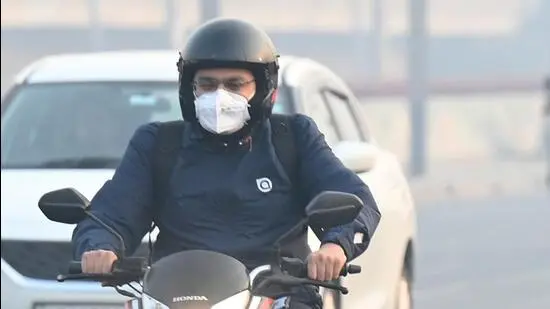
Air pollution in the capital has crossed into “medical emergency” territory, AIIMS experts warned on Tuesday, stressing that water spraying, masks and air purifiers offer “only superficial relief” at a time when hospitals are reporting a surge in pollution-linked illnesses across age groups.
“People know pollution is harmful, but they do not grasp the scale of the damage,” said Dr Anant Mohan, professor and head of pulmonary medicine and sleep disorders at AIIMS. “Air pollution is harming those who are yet to be born and those who are at the end of life. It affects the heart, brain, mental health and every physiological system. We now have clear evidence that it cuts life expectancy and increases mortality.”
Speaking at an AIIMS seminar on the health toll of the crisis, Dr Mohan said patient numbers spike sharply every time air quality crashes. “Since Diwali, we have seen a 10-15% rise in respiratory cases across departments of pulmonary, respiratory medicine, ophthalmology. Patients come in with wheezing, cough, breathlessness, burning eyes and skin irritation. People who were previously healthy are falling ill. COPD patients are deteriorating faster.”
Calling the situation “grave”, he warned, “Delhi is in the middle of a public-health emergency. Temporary fixes won’t save us. The city needs real, long-term solutions, not seasonal quick fixes.”
Dr Saurabh Mittal, assistant professor, department of pulmonary, critical care and sleep medicine, said the capital’s biggest mistake is treating pollution as a winter-only issue. “We wake up to the crisis only in November. This mindset is part of the problem. Delhi needs year-round action,” he said.
On the administration’s frequent reliance on water spraying tankers, Dr Mittal added, “It is happening, but at a very low scale. It helps only marginally and it cannot be the main strategy.”
Masks and purifiers, Dr Mohan said, offer limited individual protection and are not a substitute for systemic action. “These are personal protection measures. Wearing masks, avoiding outdoor exposure during severe pollution, and using air purifiers are not complete solutions. They only offer limited individual-level protection,” he said.
Experts said Delhi’s winter air crisis is triggered by a combination of weather patterns and human activities. Key contributors include temperature inversion that traps pollutants, and stagnant and low-speed winds that prevent dispersal. “Solutions have to come from decision-making levels and must be implemented rigorously,” said Dr Mohan.
Calling the situation “deeply concerning,” the experts added: “Every day of delay worsens health outcomes. Citizens, including children, are already bearing the brunt.”
Hospitals across Delhi are reporting similar trends. Dr Akshay Budhraja, senior consultant and department head, respiratory and sleep medicine, Aakash Healthcare, said pollution-linked cases continue to climb. “Most patients complain of cough, breathlessness, burning in the eyes and throat, and chest congestion. It is no longer limited to older people. Small children and young adults are now coming in with wheezing and persistent cough.”
